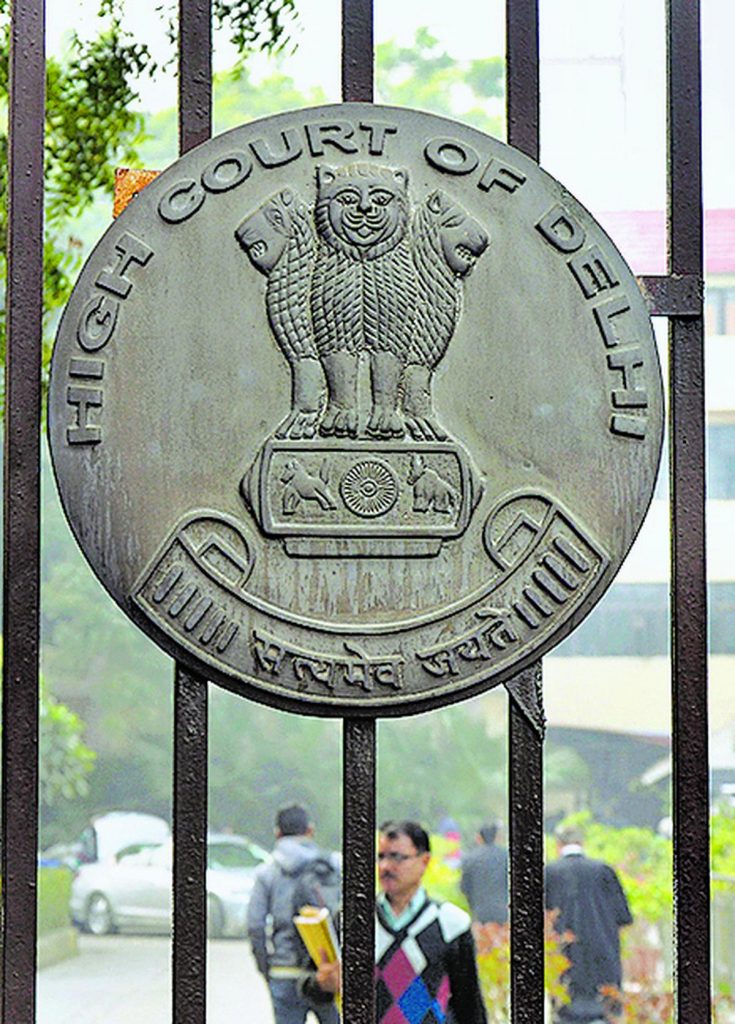![]()
The Delhi High Court has suggested that the Centre reconsider Rule 43 of the Central Civil Services (Leave) Rules, which denies 180 days of maternity leave to women government employees with more than two surviving children.
A Bench of Justices Suresh Kumar Kait and Girish Kathpalia noted that though Rule 43 of CCS (Leave) Rules was enacted in tune with the two-child policy of the government, aimed at population control, it must pass muster of Article 14 of the Constitution.
“Of course, the two-child policy aimed at population control is a laudable policy. That being so, we certainly do not advocate to incentivise more than two children. But the steps to disincentivise more than three children must be addressed to the parents and not to the children,” the Bench remarked in its July 22 judgment.
The court made the observation while rejecting an appeal filed by the Delhi police challenging a decision of the Central Administrative Tribunal (CAT) directing it to grant maternity leave to a woman constable who already had two children.
“In order to achieve success in population control, the government may take any appropriate innovative steps in order to dissuade the citizens from giving birth to more than two children. But once third child comes into existence even in womb, her rights cannot be trampled over,” the court said.
It also reminded that for population explosion, the government servants are not the only class to be held responsible.
The woman constable joined the Delhi police in 2006. From her first marriage, she had two children. The marriage ended in mutual consent divorce in 2015, with the father gaining custody of the children. She then remarried in 2016 and had a child in 2018, prompting her to request maternity leave.
DoPT opinion
The Department of Personnel & Training (DoPT) rendered their opinion in her case in March 2019 that according to Rule 43 of the CCS (Leave) Rules, entitlement of a female government servant to maternity leave for a period of 180 days is if she has less than two surviving children. Relying upon the DoPT opinion, the Delhi police rejected her maternity leave application.
She then moved the CAT, which in October last year set aside the Delhi police’s decision and directed them to grant maternity leave to the constable. The Delhi police then approached the High Court challenging the CAT’s decision.
The court highlighted the development of rule position, whereby the scope of such leave has been gradually expanding across the period from 1979 to 2018. “What began with child birth-oriented maternity leave, expanded to paternity leave and then to adoption-oriented leave and finally to the child care leave, common thread across this expansion being “the child”,” it said.
How useful was this post?
- Share review with rating here: Google Review
We are providing practical training (Labor Laws, Payroll, Salary Structure, PF-ESI Challan) and Labor Codes, Payroll Consultant Service & more:
- HR Generalist Practical Training + Certificate
- Labor Law + Payroll Practical Training + Certificate
- HR Analytics Practical Training + Certificate
- Labor Code, 2020 (Crash Course) + Certificate
- Advance Excel Practical Training + Certificate
- Disciplinary Proceeding & Domestic Enquiry – Practical Training + Certificate
- PoSH Act, 2013 (Sexual Harassment Of Women At Workplace & Vishaka Guidelines) – Practical Training + Certificate
- Compensation & Benefits – Practical Training + Certificate
- Industrial Relations – Practical Training + Certificate
- Labour Code (2019 & 2020) With Latest Updates | Labour Bill (Labour-Law-Practical-Training)
- PF – ESI Consultant Service
- Labor Law Consultant | Compliance Management | HR & Payroll Outsourcing
Get Latest HR, IR, Labor Law Updates, Case Studies & Regular Updates: (Join us on Social Media)
- Telegram Channel: The One Clik
- Whatsapp: https://wa.me/919033016939
- Facebook: The One Clik
- Linkedin: The One Clik
- Instagram: The One Clik
- YouTube: The One Clik
Disclaimer: All the information on this website/blog/post is published in good faith, fair use & for general informational purposes only and is not intended to constitute legal advice.

